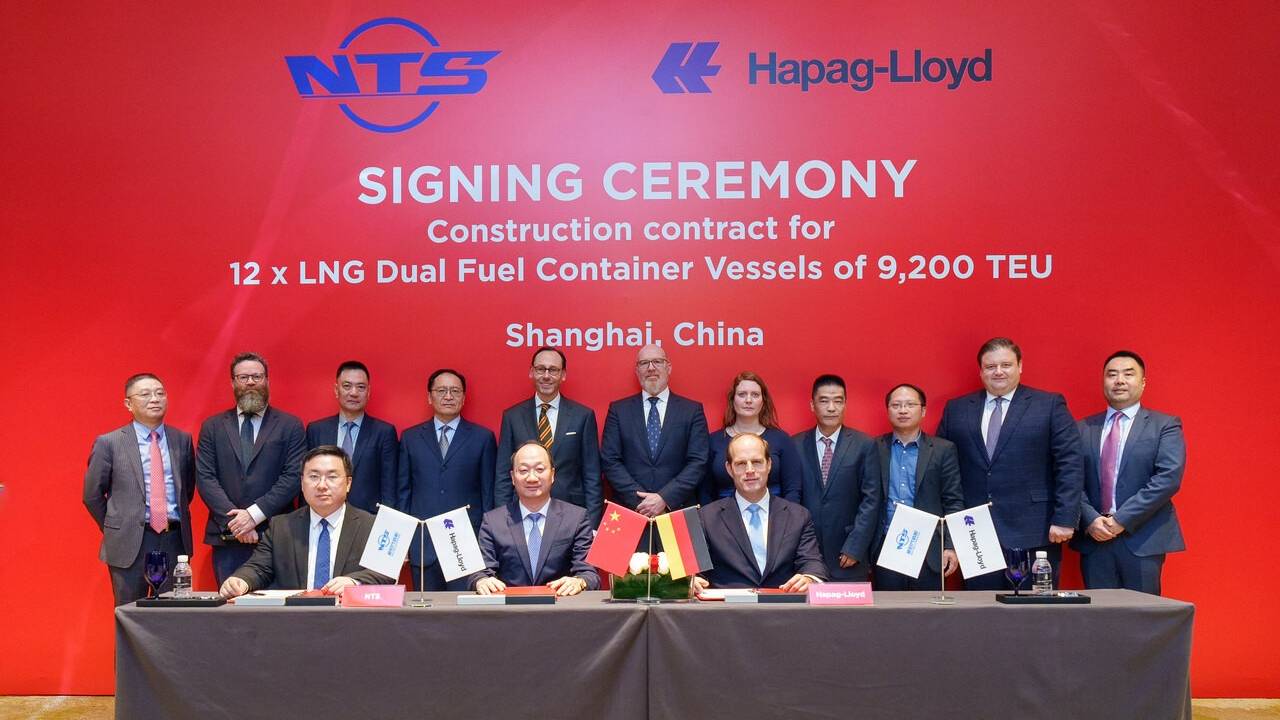Hapag-Lloyd orders 24 new container ships
Hapag-Lloyd has signed contracts with two Chinese shipyards for the construction of 24 new container ships. Yangzijiang Shipbuilding Group will build 12 of these vessels, each with a capacity of 16,800 TEU, to enhance existing service capacities. The remaining 12 ships, with capacities of 9,200 TEU each, will be built by New Times Shipbuilding Company Ltd. and are intended to replace older vessels nearing the end of their operational life.
All new ships will feature advanced, low-emission high-pressure liquefied gas dual-fuel engines, designed for fuel efficiency and capable of running on biomethane, which can cut CO2e emissions by up to 95% compared to conventional engines. These vessels are also ammonia-ready, preparing them for future energy transitions. Hapag-Lloyd expects delivery between 2027 and 2029, adding a combined capacity of 312,000 TEU with a total investment of approximately USD four billion, supported by a committed long-term financing of USD three billion.
“This investment is one of the largest in the recent history of Hapag-Lloyd, and it represents a significant milestone for our company as it pursues the goals of its Strategy 2030, such as to grow while also modernizing and decarbonizing our fleet. Operating a fleet of more efficient vessels will also enhance our competitive position, and thanks to the increase in capacity, we will continue to offer our customers a global, high-quality product,” said Rolf Habben Jansen, CEO of Hapag-Lloyd AG.
Hapag-Lloyd is strongly committed to achieving the 1.5-degree target set by the Paris Agreement. The company aims to reduce its fleet’s absolute greenhouse gas emissions by roughly one-third by 2030, compared to 2022 levels, as part of its journey toward net-zero fleet operations by 2045. This ambitious goal will be pursued through investments in efficient newbuildings, slow steaming practices, fleet modernization, and the adoption of new propulsion technologies and alternative fuels, offering customers diverse green transport options.
As part of these efforts, Hapag-Lloyd recently decided to retrofit five vessels for methanol propulsion, a move announced on April 16. This decision aligns with Hapag-Lloyd’s strategy to support a multifuel future and advance decarbonization within the liner shipping sector.
Hapag-Lloyd currently operates 287 modern container ships, with a total capacity of 2.2 million TEU, placing it among the world’s leading liner shipping companies. It also manages the largest fleet under the German flag.

